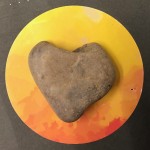All I ever really needed to know about teaching I learned in elementary school.
The luckiest thing to ever happen to me was that the world’s most fabulous teacher happened to work at the public school I attended as a child. I had the true pleasure of having a two hour block with the inimitable Mrs. Connie Trakes for three years, 4-6 grade.
This is what I learned from my time with Mrs. Trakes:
- My opinion matters
- It’s ok to hate a book — say so!
- There was a doll in the 1960’s named Chatty Cathy
- It’s important to empathize
- My identity matters
- It is ok to be wrong
- Check the source
- Making others smile is important
All of these, including the bit about Chatty Cathy dolls, taught me how to teach. When I first started teaching I began copying and stealing lesson plans from the time in my life I knew I grew the most. I didn’t know why the things she did were important necessarily, but I knew they made me love her class.
She asked us riddles from a deck of cards called Mind Trap, so I ask my students questions from Mind Trap. She made us listen to Enya while we worked, so my kids listen to Enya now. She made an allusion to a Chatty Cathy doll we didn’t understand; I quote The Animaniacs daily without apology. We played a card game in small groups called Set, so now my class plays a digital version– you get the picture.
I want to divulge an oral history of what class was like in those years. I want to explain all of the extraordinary things she had us do at a young age. The problem with that is a blog cannot contain it all, but here are some highlights.
I wore a wig and brought dry-ice to fuel a cauldron during my reenactment of Macbeth. (I still remember my lines, by the way: Fillet of a fenny snake, in the cauldron, boil and bake!)
My friends and I created a culture of ‘hat people’ who prayed at an alter of a sewing machine — the ‘hat people,’ by the way, had their own alphabet, and they wrote vertically, from right to left.
In the 1990’s, I, a ten-year-old, was asked to critique Casablanca and the original King Kong — not summarize, critique them.
These are a small portion of the many memories I had in the green-carpeted portable surrounded by graveled ditches and abundance of weeds.
She still taught us from the text book, and prepared us for district and state exams, but all of that seemed secondary to her true purpose.
So, recently when I was reading Gholdy Muhammad’s book Cultivating Genius, it dawned on me: Mrs. Trakes did not occupy herself with the priority of standards; no, she, instead, was busy cultivating genius in her classroom.
Muhammad’s book, among other things, points us to teach intellectualism, identity, and criticality. These goals, Muhammad explains, will give students “opportunities for personal, intellectual, and academic success.” To wildly oversimplify the message of the book, teachers should be teaching students how to learn more than teaching them facts to memorize.
I am reading the book with fellow Teacher Leaders from around the state right now. We’ve been having remote check-ins. I was prompted by a question in the terms of “what in this section of the book was new to you?” I sat with that for a moment, thought about it, and in earnest responded “nothing.”
It felt super pretentious, and I wanted to take my comments back. But, weeks later that question stuck with me, and I kept wondering “why does this all seem familiar to me?” Now, I’m not saying I’m an expert pedagogue. I’m not saying my classroom is perfect and yielding unparalleled results. I’m really not saying the book is something I already knew; what I am saying is that all of these ideas are not new. What I have realized was that all of this is familiar because I had a teacher who believed all these things to be true.
She taught us to be curious and she taught us about ourselves. I entered every phase of my life with a touch of confidence and a dash of “give it a try.” While memories of other classrooms and lessons have faded over time. I never forgot Mrs. Trakes, her lessons, or the way she empowered us.
So now, I find myself understanding what she did. Perhaps now, I can take my haphazard mimicking of her classroom, and morph it into a new, meaningful, paradigm in my class. I have been balancing a need to meet standards, master skills, and hit benchmarks with a need to have levity in the classroom.
I better see that the levity Mrs. Trakes instilled in the classroom was not a break from learning; instead, it was the learning we all needed.
It’s with renewed vigor that I dust off the fun and games from childhood, and position them more intentionally in my lessons today.
What ways do you cultivate genius in your classroom? How do you push beyond the standards? Leave a comment below!









Comments 1
Great post! I loved Mrs. Janda. She was my 4th and 5th grade teacher. She taught me not to be embarrassed about who I am or what I like to do. She inspired me to be a reader. She always looked her best and gave her students so much love and attention. I truly admire her.